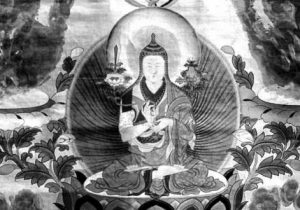
Who are the most important people in your life? What would you do to ensure they continue to be part of your life? It’s not wrong to love your friends and family and to enjoy having them around. It is normal to hope that you have as much time together as possible. Are you clinging to the people around you? Or are you simply caring about the people around you?
Season three of The Death Dhamma Podcast focused on attachment. Or, as one of our guests said, “Oh, you mean the Second Noble Truth.” Discussions included the ways we cling to people, places, roles, ideas, and more. We also covered aversion, times when we strive to avoid experiences, people, ideas, or other elements that we find to be undesirable. Who wants difficulty? Most of us shy away from unpleasant experiences. That’s the aversion component of attachment.
Speaking with podcast guests about attachment led me to contemplate how a specific type of clinging or aversion was present for me. And that led me to journaling as a way to discover how I was contributing to my own suffering. A journal based on season three of the podcast now exists as Clinging & Aversion: A Buddhist Journal for Letting Go (available in the United States only.)
Let’s consider one of our more common forms of attachment. The clinging and aversion we feel toward the people in our lives. A common myth around Buddhism and attachment is the idea that you are not supposed to love or need other people. This is not true. Maybe this myth comes from the monastic lives of monks and nuns. They choose celibacy and they leave their families to live the holy life. Some may dwell independently, away from others, spending time in solitary meditation. Most live in a community with other monastics. They form friendships and they depend on one another. Who do you depend on?
Make a list of the most important people in your life. Or, if it works better for you, the most important beings. Some of us have significant relationships with our furry, feathered, or scaly friends. For each being, note why he, she, or they are important to you. Be honest. No one is looking but you. I realized that a friend was important to me because when I visited her, I could relax. I felt safe and cared for in a way that I didn’t feel when I was with others.
Our relationships with others are critical for our well-being. We need other beings to help us on our path. How do you develop loving-kindness, compassion, generosity, and patience without others? Your interactions with others can be a core part of your mindfulness practice. Mindfulness helps you to discern why you are attached to a person or a relationship and whether or not you are being skillful. You are not eliminating connections; you seek to remove unskillful attachments. Clinging is the mark of an unskillful attachment.
Revisit your list of the most important people in your life, now note what you have done or would do to keep them as part of your life. Move across the country? Break up with your other friends or family? Also, note how big of a loss it will be when this relationship ends.
Remember, it is not wrong that you love, or that to lose someone would feel devastating. Your purpose right now is to create awareness. So often death or change comes and we are left unprepared. Wondering, “How will I live without my partner (or mother, or father, or best friend.)”
If you feel ready, consider meditating on a scenario in which one of the important people on your list is gone—they die, move away, or you break up. Sit with what it feels like for that person to be absent from your life. If this becomes too stressful, stop and send thoughts of loving-kindness to yourself.
There are people in your life whom you avoid. If someone has been harmful or abusive to you, it makes sense that you will stay away. With aversion to people, you want to look at the amount of effort you expend to avoid them.
Take a moment and list some of the people you avoid and why you avoid them. After you complete your aversion list, step away. When you return, review your list. Is there anyone on the list who, on reflection, is not worth the effort it takes to avoid them?

Some final thoughts on our connections: my parents had a family friend who was terminally ill. As his time of death drew closer, his wife suspected that he was having a hard time letting go. He had many siblings. Some of them were able to be by his side in the dying process. But some were not. His wife realized that maybe what he needed was to say goodbye. And so she called each of the missing siblings and put the phone up to his ear. Miraculously, she was able to get everyone on the phone. And just a few minutes after he finished the last phone call, her husband took his last breath and died peacefully.
If you were dying, who would you want to speak to before you drew your last breath?
Genuine relationships are essential for our emotional health. The key lies in distinguishing between clinging and caring. Clinging often stems from fear—fear of loss, fear of loneliness, and fear of change. Caring is rooted in love and respect for the autonomy of others. By examining your motivations behind attachment, you can foster nurturing and fulfilling relationships.
The goal is not to sever all connections, rather to release unhelpful dependencies that may lead to suffering.
See more
Margaret Meloni: Death Dhamma
The Death Dhamma Podcast (Margaret Meloni)
Related features from BDG
Something Is Missing, Because Someone Is Missing
Of Rainbows and Sea Turtles: Letting Memories Guide and Heal Us
Embracing Suffering as Part of Your Journey
Related videos from BDG
The Death Dhamma Podcast Season 1
The Death Dhamma Podcast Season 2
The Death Dhamma Podcast Season 3
The Death Dhamma Podcast Season 4












